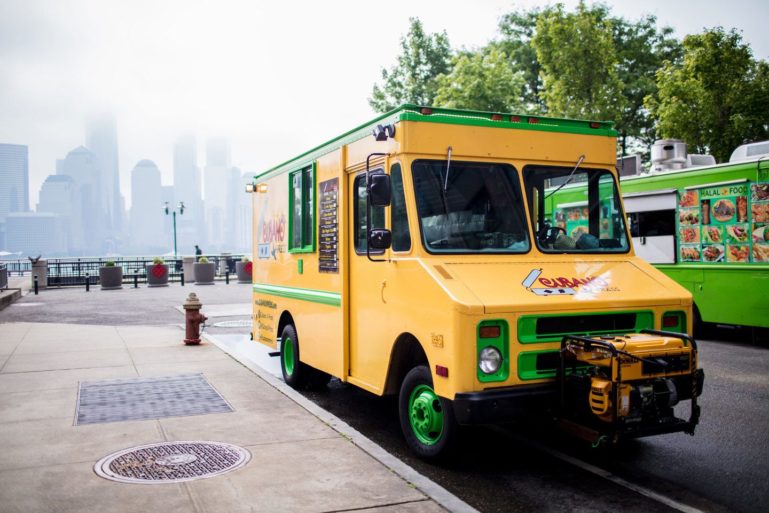
Street food has come a long way in the last few years, with the diversity of food you can buy from mobile units worldwide. While only a generation ago, you were limited to a hot dog or questionable burger, you can now taste the food of a dozen cultures from food trucks parked across your city. As a foodie and prospective business owner, the idea of starting a food truck business is a tempting one as you’ll be able to cook the food you love while being your own boss.
The food truck industry has been blowing up, making now as good a time as any to get involved. Suppose you can put your spin on the food that’s being served in your area. In that case, there’s no reason why you can’t build a successful food truck business as with any business. However, you’ll need to spend plenty of time planning before jumping in, as you could quickly lose a significant amount of cash if you don’t plan correctly. One of the most critical areas to look at closely is the start-up cost and running cost of your business, as this will define how much you need to sell and how long you need to work each week to make a profit.
Table of Contents
Licenses and certificates
As a restaurant on wheels, you’ll need quite a few permits and certificates before you start operations, and failure to cover these could result in severe fines. Start by looking for specific licenses in your local area, as these can be different from city to city, and will include registering to sell food and licenses for your truck to be on the road.
Food registration
You’ll need to register as a food business in every area you plan to do business in at least a month before you start selling there if you plan on selling in multiple cities or states.
Food safety license
If you’re preparing meat, dairy, fish, or eggs, you’ll need a specific food license like what a restaurant needs. An official from your region will need to inspect your truck to ensure it’s safe and hygienic enough to operate.
License for street trade
The license to trade on the street will also likely depend on your location, and for some regions, this may be relatively simple, but for others, it could be more of a challenge. There’s a limited number of permits, and waiting lists in New York can be long, for example. Some areas will require you to pay in full before you start trading, while others will allow you to pay in monthly installments, so make sure you take this into account in your financial planning.
Gas safety certificate
If your food truck cooks with gas, then you’ll also need to apply for a gas safety certificate that proves that all the equipment in your vehicle is safe to use. When purchasing a car, or installing gas burners yourself, look for a CE mark and a flame failure device to ensure that you meet the correct standards.
Food hygiene
As you’ll be handling food that will be distributed to the public, you’ll need to show that you’re preparing it safely and hygienically. You can show this by getting a certificate, but this may not be mandatory, depending on where you live. Look into your local regulations, and make sure you’re covered within your city or state.
Renting a truck vs. buying one
With your licenses and certificates, all arranged, you can start the most exciting but perhaps the most expensive part of your business. The main decision to make at this point is if you should rent a food truck or buy one outright.
Buying
The cost of buying a food truck can vary massively depending on how new it is, the size, and the equipment already installed. For a used food truck, you’re likely looking at between $15,000 to $50,000, and there are many websites you can browse that specialize in selling used trucks. Spend some time to understand the market and make sure you know what a good deal is, so that you’re not overpaying. A cheap truck may be appealing, but if you end up spending a significant amount on repairs and replacement parts over the first year of ownership, it may be a false economy. A new truck will ensure that you’ll minimize any maintenance issues in the future and maybe cheaper in the long run. If you choose to buy new, make sure you’re buying from a reputable dealer such as https://www.craftsmenind.com/commercial-mobile-kitchen-trailer-truck or somewhere with good reviews.
Renting
Finding the costs of renting a food truck may be more difficult as there’s no standard pricing, and owners will charge depending on the truck’s age and facilities. An excellent place to start is by Googling for ‘food truck rental’ or ‘food truck hire’ and see what options are in your local area. If you have limited start-up capital renting, it can be an attractive option, as you don’t need to invest as much upfront. Renting can also be a way to test how well people respond to your idea, and you may find that you’ve saved a significant amount of money if your food isn’t as popular as you thought. If you plan on making this a long-term venture, though, renting may not be the best idea. The monthly costs will cut into your profit, and you won’t be able to design your truck exactly how you want it.
Kitchen and cooking equipment
As well as the truck itself, you’ll need to make sure that it’s fully equipped for food preparation and to serve your customers. If you’re converting a car or adding to a car that you’ve purchased, here’s a list of the necessary equipment you should consider:
- Sink and draining board
- An oven, grill, or specialist cooking equipment (such as a pizza oven)
- Water heater
- Extractor fan
- Garbage disposal
- Lights
- Fire equipment
- A screen at your ordering window
- A commercial fridge/freezer
- Preparation surfaces
- Plates and cutlery (disposable)
- Aprons, gloves, and head coverings
- Suitable storage
Most food trucks will come with at least some of these, but depending on if you buy a new or used truck, you may need to invest a significant amount of this equipment. A great way to save costs when you’re first setting up your food truck business is to rent the more expensive items to have fewer upfront costs, and buy them over time.
Food inventory
As you reach your first day of operations, you’ll need to purchase all the ingredients you need to make each item on your menu. The process can be challenging at the start of your journey as you won’t have any data on which items will be more popular than others, so you’ll likely have too much of some food and not enough of others. Do your best to predict how much of each ingredient you’ll need and consider how much you need to sell at minimum to break even and make a profit, as this is the minimum of ingredients you’ll need. Consider how much space you have to store your ingredients, especially the perishable ones, as you may need to purchase these regularly. By thinking about these things, you’ll estimate how much of each component you’ll need, and then, adjust over time, depending on the real demand for the items on your menu. A good rule is to start with less, and then, scale up as if you buy far too much food that perishes, you could lose a significant amount of money.
Additional costs of running a food truck
On top of your food, you need to consider several other consistent costs when running your food truck business.
Gas or electricity: Depending on the cooking appliances, you’ll need to pay for gas or electricity, and this will vary on how long you’re cooking for each day.
Wages: You’ll often need at least one or two additional staff members to help you take orders and prepare food throughout the day.
Fuel: If you’re traveling long distances to work, events, or festivals, this will have a more significant impact on your bottom line than serving people in your local area.
Vehicle insurance: As you drive a mobile restaurant, you’ll need to have full coverage price like any other vehicle.
Vehicle tax: This also needs to be paid to make sure that your vehicle is roadworthy. You can pay annually, and the cost will depend on the make and model of your truck.
Maintenance: As you drive your truck around, it will naturally gather wear and tear, and you’ll have to replace tires, breaks, and other mechanic faults. The cost of maintaining your truck will largely depend on its age and how many miles you drive each year.
If you like the article then follow TodayTechnology for more informative and interesting content!








